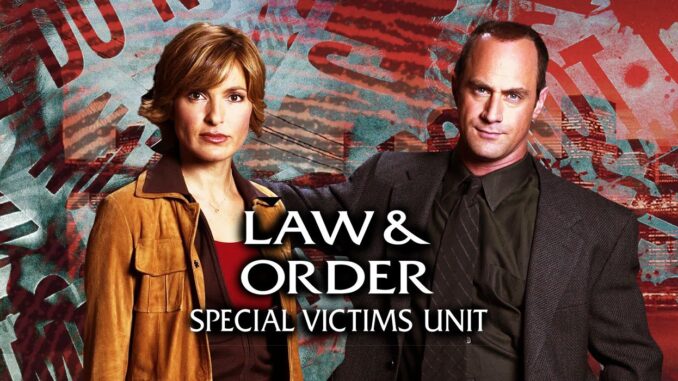
The hum of the set, usually a comforting backdrop to Mariska Hargitay’s life, felt different that day. It was a low thrum of unease, a premonition of silence. For twelve seasons, her world on “Law & Order: SVU” had been defined by a twin star, a gravitational pull named Christopher Meloni. Their partnership as Olivia Benson and Elliot Stabler wasn't just critically acclaimed; it was a cultural phenomenon, a masterclass in unspoken language and explosive chemistry that blurred the lines between character and actor, friendship and family.
Then came the news, swift and sharp as a shard of ice: Chris was out. Contract negotiations had stalled, creative differences had surfaced, and the decision was made. He was leaving.
Mariska reflects on that moment, and the word she consistently uses slices through the years with the same raw edge: "I was devastated."
It wasn't merely the professional blow, though that was immense. Benson and Stabler were the show’s very spine, their dynamic a tightly wound spring that propelled every episode. How do you continue when half of that vital mechanism is suddenly gone? But the devastation ran far deeper, touching the very core of her personal landscape. For twelve years, Chris had been her co-pilot, her creative confidante, the person who understood the unique pressures and joys of their shared artistic journey without a single word needing to be exchanged.
Imagine building a house, brick by brick, with one person by your side. You learn their habits, their tells, the rhythm of their work. You navigate storms, celebrate breakthroughs, and lean on each other when the foundation feels shaky. Then, one day, they simply don’t show up, and you’re left with the scaffolding, the blueprints, and an echoing emptiness where their presence once was. That was the essence of Mariska’s devastation. It was a gut punch, a sudden amputation of a professional limb that had, over time, become an extension of her own artistic body.
"Devastated" is a powerful word, connoting not just sadness, but a sense of profound shock, a shattering of what was known and reliable. It implies a loss that feels almost personal, a form of grief. It was the loss of that effortless banter, the shared glance across a grim interrogation room that spoke volumes, the comfort of knowing someone else carried an equal weight of the narrative and the emotional burden of their characters’ dark world. It was the sudden realization that the daily rhythm of her life—the early calls, the long hours, the inside jokes, the shared exhaustion and triumph—would be irrevocably altered.
The set, once a bustling hub, suddenly felt vast and hollow. Every scene filmed without him was a stark reminder of his absence. For a while, she admitted, she felt unmoored, like a compass spinning wildly without its magnetic north. There was the weight of the show’s future on her shoulders, the pressure to prove that SVU could still stand, still thrive, even with its primary axis removed. This was a new challenge, one she faced with a brave face for the cameras and a gnawing ache in her heart.
Yet, out of that devastation, something remarkable grew. Mariska Hargitay, and by extension Olivia Benson, was forced to evolve. She became the singular anchor, the undeniable heart of the show. Benson’s character deepened, becoming a fierce, compassionate leader in her own right, her vulnerability balanced by an unwavering strength forged in adversity. This evolution, while born from pain, ultimately showcased Mariska’s incredible talent and resilience.
Years later, the universe, in its own mysterious way, began to mend the fracture. The eventual return of Christopher Meloni as Elliot Stabler, not just to the same universe but often to the same screen as Olivia Benson, was a cathartic release for fans and, undoubtedly, for Mariska herself. The devastation, though deeply felt, had not been permanent. The bond, both on and off-screen, had weathered the storm.
Mariska’s reflection on Christopher Meloni’s exit as “devastating” is more than just a fleeting sentiment. It’s a window into the profound connections forged in the crucible of creative collaboration, the personal cost of professional shifts, and the enduring power of friendship. It reminds us that even in the brightest spotlight, the human heart grapples with loss, and sometimes, the most profound growth emerges from the deepest parts of devastation. It was a loss, yes, but one that ultimately redefined a career, deepened a character, and solidified a bond that transcends time, screen, and even initial heartbreak.
